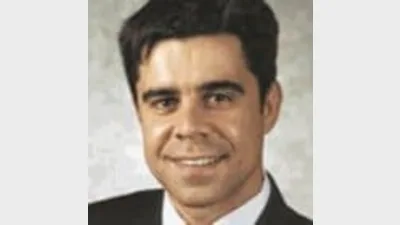Missing out on value



This might be a little hard to believe, but the SMSF Professionals' Association of Australia (SPAA) believes many self-managed super funds (SMSFs) are under-claiming their tax deduction entitlements.
SMSF trustees and their advisers are typically extremely vigilant when it comes to claiming their legal tax entitlements, but a recent Australian Tax Office (ATO) decision has highlighted a potential trap with the way some SMSFs may have been calculating the proportion of general administration expenses which are deductible to the fund.
The sums are not inconsiderable. Over one year it could result in funds paying hundreds of dollars of extra tax, a sum, which if multiplied over the course of a few years quickly adds up to a substantial amount of money. It's worth spelling out in detail just what this ATO decision actually said.
In short, or, at least in short for the ATO, the decision said that super funds were entitled to include the total value of all contributions (not just taxable contributions) and rollovers received during the income year when determining the proportion of a general administration expense that is attributable to gaining or producing the fund's assessable income - and therefore the proportion of the expense that can be claimed as a tax deduction.
So when is this relevant? It should attract the interest of trustees and advisors in situations where the fund may have some exempt income because it has members both in the accumulation and pension phase. Think of a small family business where mum and dad have retired and the son is now running the business, and all are members of the same fund. The former are in the pension phase; the latter in the accumulation phase.
As the fund has earned some exempt income, it is not entitled to a deduction for the full amount of the general administrative fee. Instead, the fund is required to work out the proportion of the general administrative expense that is attributable to gaining or producing the fund's assessable income to be deducted from the fund's assessable income.
In my experience, it is common practice for SMSF trustees to only include the value of taxable contributions in the fund's assessable income total when calculating the proportion of general administrative expenses that can be claimed as a tax deduction.
But now it's time for trustees and their advisors to think again as this decision by the ATO makes it clear that the full amount of any contributions or rollovers received by the fund during the income year can be treated as assessable income.
By including the full value of contributions and rollovers, a higher proportion of the general administrative fee can then be claimed as a deduction versus what would be the case if rollovers and non-taxable contributions, such as non-concessional contributions, are excluded.
In SPAA's experience it is common practice for many SMSFs to do the latter, which means they may have been under-claiming tax deductions for general administrative expenses where they have members both in the accumulation and pension phase.
The fact this ATO decision has been overlooked by some advisers and trustees isn't just significant because of the tax dollars at stake. It should also serve as a reminder of the importance of keeping abreast of ATO decisions, because they normally don't come with any fanfare - particularly when it is a decision that favours the taxpayer.
Peter Burgess is the technical manager at SPAA.
Recommended for you
The winners have been announced for the 2025 Super Fund of the Year Awards, held in Melbourne on 26 November by Money Management's sister brand Super Review.
Data and technology provider Novigi has acquired Iress’ superannuation consulting and managed services business from Apex Group.
AMP is to launch a digital advice service to provide retirement advice to members of its AMP Super Fund, in partnership with Bravura Solutions.
Unveiling its performance for the calendar year 2024, AMP has noted a “careful” investment in bitcoin futures proved beneficial for its superannuation members.









